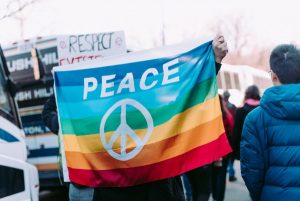SDG 15, Life on Land
Earth year 4,492,056,017
Mother Earth/ Gaia‘s Blog
Mankind, My children
In my first blog I asked that you commit to following my blogs for a few weeks to give me a chance to explain the most important issues affecting our joint survival. In today’s Blog I want to talk about Life on Land.
The Problem
1.6 billion people including 70 million indigenous peoples depend on forests for their livelihood and forests are home to 80% of all land animals, plants and insects.
 2.6 billion persons depend directly on agriculture but over half of agricultural land is affected by soil degradation and 74% of the poor are directly affected by land degradation Globally.
2.6 billion persons depend directly on agriculture but over half of agricultural land is affected by soil degradation and 74% of the poor are directly affected by land degradation Globally.
Out of the 8300 animal breeds, 8% are already lost and a further 22% are at risk of extinction. Less than 1% of the 80,000 tree species have been studied for potential use so their premature loss through illegal logging and land clearance may be losing mankind important medicines and drugs that could be of benefit to mankind in treating the major illnesses and diseases.
Do you feel concerned about uncontrolled deforestation and loss of habitat that is resulting in loss of numerous animal and plants species. Are you aware of the devastating effects around the world – especially on the millions in developing countries who depend upon such resources to survive? Now is your chance to do something to help us change the world!
The facts
- 3 billion people get 20% of their animal protein from fish but only 10 fish species provide 30% of marine capture
- Over 80 % of human diet is plants and 3 crops – maize, rice and wheat provide 60% of the energy take Globally so any interference / reduction of yields will be catastrophic.
- 1% rise in global warming results in a 5% reduction in grain yields affecting food security of the planet and has devastating effects on many sea creatures
- 80% of people living in rural areas of developing countries rely on traditional plant based medicines so loss of forests / vegetation can be devastating for their communities.
WCYDo (wich-ee-do What Can You Do?)
- Use more sustainable transport- walk, cycle or public transport, instead of cars
- Support and fundraise for charities combating deforestation eg. https://www.wwf.org.uk/
- Buy wood only from sustainable sources and ask seller if his supply is from sustainable sources.
- Write to local and National politicians to support action on climate change
- Tell family, friends and others to join us and to do the same
Tell others and encourage them to join our Group on Facebook to get our newsletter and the latest information on our activities. See you next week on blog 16

